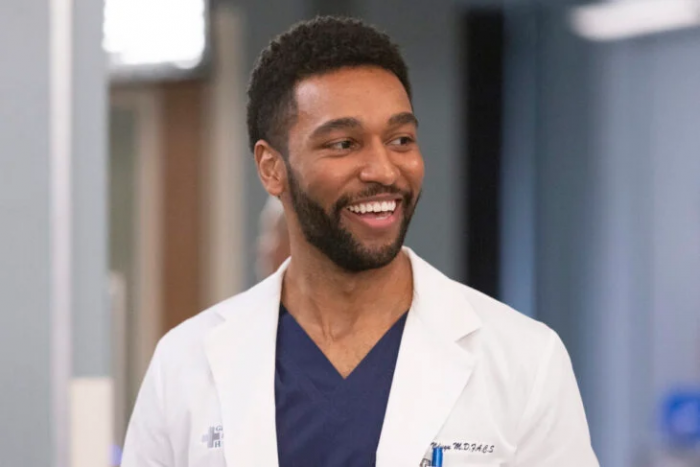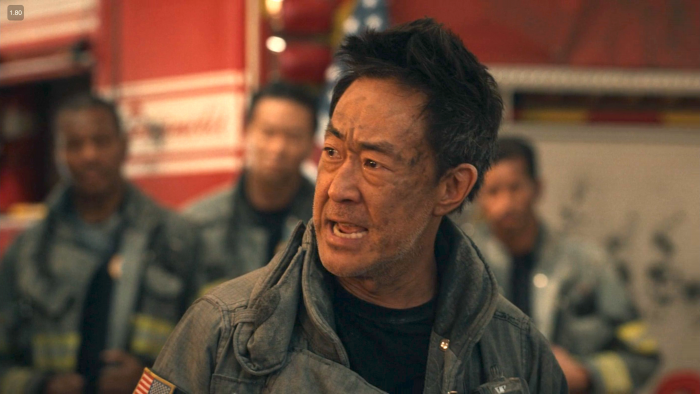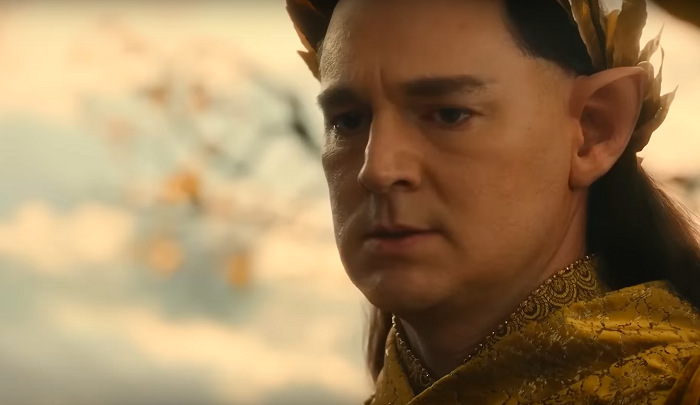
'Grey's Anatomy' Is Just So Bad Now
By Dustin Rowles | TV | May 16, 2025

I bailed on Grey’s Anatomy for maybe 12 or 13 seasons, but I returned at the end of the 19th season and continued watching through seasons 20 and 21. It’s safe to say I’m caught up. I know the relationships. I know the characters. And I know that this show is a husk of its former self — worse now than it was when I quit the first time.
Sharing the same TV space as The Pitt does Grey’s no favors. Not that they should necessarily be compared — The Pitt is a medical series; Grey’s Anatomy is a soap opera set inside a hospital. That distinction couldn’t have been clearer in the 21st season finale, when a desperate mom played by Piper Perabo — whose young daughter was left paralyzed after a risky, experimental surgery — brought in an acetylene tank and threatened to blow up the hospital if Dr. Shepherd didn’t “fix” her daughter. Shepherd did exactly that: she performed an impossible brain surgery without the necessary equipment or personnel and miraculously reversed the girl’s locked-in syndrome.
Before Perabo’s character was taken away by the SWAT team, she revealed that the tank was empty, that it had always been empty. But after her arrest, her husband — whose worksite the acetylene tank was stolen from — told the doctors there were no empty tanks. A few minutes later, the episode ended with an operating room explosion, leaving the fates of several hospital staff unknown. For the record, though, the most likely casualty is Dr. Atticus Lincoln — generic white guy doctor — because he was supposedly operating in that room. Also, he spent the episode before that in a supply closet during a hostage situation, enjoying his “honeymoon” with his new wife, Dr. Jo Wilson, and a tragic end just feels inevitable for a character who’s been around for seven years and, honestly, doesn’t offer much.
Before that, there was more ridiculous drama. To wit: Dr. Hunt and Dr. Altman, trapped in a terrible marriage, spent the season exploring the idea of opening up their relationship. It ended as badly as you’d expect when Dr. Hunt fell in love with a hospital patient (and old flame), Nora, who ended up under Dr. Altman’s care in the finale. After Dr. Owen consoled Nora, Dr. Altman performed yet another impossible first-of-its-kind heart surgery and saved her life. But then Dr. Owen was like, “Yeah, I have feelings for her. But you’re my wife and the mother of my children,” and Dr. Altman was like, “Yeah, nah. I’m out!” The fact that Dr. Bailey didn’t know where Altman was at the end of the episode is supposed to suggest she may have been near the OR when it exploded.
Meanwhile, Dr. Grey made one of her occasional cameos so ABC can claim she’s still on the show and Ellen Pompeo can keep cashing massive checks. She returned to sell her shares in the hospital to fund her Alzheimer’s research, but by the end of the episode, Dr. Webber talked her out of it. She decided instead to bring her kids back to Seattle (from Boston, where she’s currently working) for the summer and scrub in a few times to keep sharp. Conveniently, we probably won’t witness much of that action.
As for Dr. Warren, he’s not asked to stay on at the hospital, and Dr. Bailey (his wife) is upset. During the hostage situation, while the OR floor was locked down, Dr. Warren performed emergency surgery and saved a guy’s life. It was not enough, apparently, to save his job.
Elsewhere, the interns graduated to their second year. The show mostly centers on that younger cast these days, but to be honest, they’re not particularly compelling. There’s a lot of high-school relationship drama, but very little medicine. The only halfway interesting storyline among the interns is Dr. Ndugu — who is hot AF — refusing to work with Dr. Millin because he caught feelings for her. He finally confessed as much in the finale, saying he didn’t want to cross any lines. Dr. Millin, to her credit, was like, “I know the lines, bro. They are very clear to me, and my medical education should not be shortchanged because my soft, beautiful eyes make your heart melt.” And she is exactly right, and good for her, but also: has she seen Dr. Ndugu with those big eyes of hers? Because damn.
I’m not even going to get into the situation between Dr. Simone Griffith and Dr. Lucas Adams because, man, I just don’t care, and I doubt anyone else does either.
And that’s maybe the biggest problem with Grey’s Anatomy right now: there are too many cast members to service. Consider that Natalie Morales is a recurring character who appeared in maybe six or seven episodes this season, with all of about 10 minutes of screen time. Natalie freakin’ Morales! What’s the point? Likewise, Scott Speedman — Meredith Grey’s partner — is also recurring, showing up in about five episodes just to remind us he’s still around. He and Morales essentially had one storyline this season, but the series would’ve been better off giving those storylines to regular cast members, who struggle more than SNL’s featured players to get meaningful screen time. The old-timers, except for Chandra Wilson’s Dr. Bailey, are all part-time now, leaving fewer opportunities for the newer cast to establish themselves.
They kill off one or two characters a season, and it still feels like the cast is too big. The guest stars — patients and their loved ones — carry much of each episode. There are a ton of Denny Duquettes, but most of the doctors feel disposable. There are no POV characters, just a collection of pretty faces in scrubs. The bad writing doesn’t help, nor does the fact that the series has exhausted nearly every possible storyline. It also doesn’t help that no one feels like a real doctor, just actors spewing medical jargon while standing over patients in the OR.
It just doesn’t work. The series needs to streamline. It needs to focus on five or six core characters. Meredith Grey needs to either commit or leave, and for God’s sake, if you’re going to put Anthony Hill in a show, you make him the star. He’s the only actor under 40 who actually has a presence onscreen. The rest are just kind of…there, which is exactly what Grey’s Anatomy is after 21 seasons: just kind of there.


